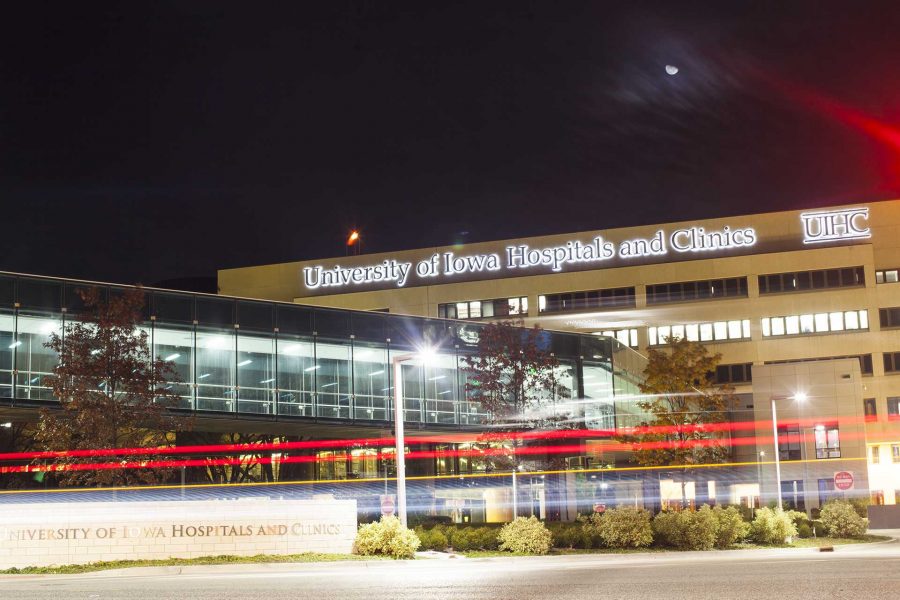Twins are believed to be youngest born at UIHC
Kambry and Keeley Ewoldt are believed to be the youngest born children at the University of Iowa, four months before their due date.
The UI Hospitals and Clinics is seen from the west on Wednesday, Nov. 9, 2017.
February 5, 2019
Twin sisters Kambry and Keeley Ewoldt came into the world four months early, and officials believe they are the youngest twins to be born at the University of Iowa Hospitals & Clinics.
Jade and Wesley Ewoldt, mother and father of the two girls born on Nov. 24 and weighing around a pound each at birth, were obviously nervous about their daughters during their journey.
“When they were born, they had a very large chance of passing away,” Jade Ewoldt said. “Since then, the whole team has become very impressed with them. They have overcome many obstacles this far.”
The twins’ due date was originally set for March 29. The family is from Dysart, Iowa, and went to UIHC knowing they would be in the best hands possible, Ewoldt said, as they set out for one of the largest obstacles of their lives.
“We 100 percent trust the UI Hospitals & Clinics,” she said. “I can’t physically protect my girls, but I can be their voice. [UIHC] has a passion for seeking our opinions as parents.”
UI pediatrics Professor Jonathan Klein noted that the care for premature infants has grown during his years in practicing medicine.
“In 1990, we cared for babies that were 24 weeks and older,” he said. “However, the medications and technologies that are available today were not used, and survival rate was low.”
As the years went on, he said, care began to improve with new technologies to help premature infants survive.
RELATED: Inflammation in the womb can cause autism-like traits, UI study says
“The research and findings are all driven by families that want us to try,” Klein said. “If they don’t want us to continue care, we do not continue.”
He noted that, as the twins approach their original due date, they could be closer to going home. They are currently housed in the NICU at the UI Stead Family Children’s Hospital.
“Even though they are 10 weeks old, it is not extra time of life,” Ewoldt said. “They are still basically growing, and those milestones won’t happen until their due date.”
However, the medical team remains hopeful that with nursing and growth, the babies will recover well.
“It is not a perfect outcome, but the glass is definitely more than half-full,” Klein said.
UI obstetrics Professor Stephen Hunter, who specializes in high-risk obstetrics, said the care a mother receives at the UIHC when situations such as this arise is what sets it apart from other hospitals.
“It takes a great deal of communication, trust, and respect between neonatal and maternal medicine physicians,” Hunter said. “Communication is important to us, because that is how we learn about their outcomes.”
RELATED: UI research presents proof of accidental overdose by infants on household prescriptions
Ewoldt said she won’t stop telling her story, because of the significance it left on one of the UI students.
“There was a student in the neonatology program here who was not sure if this was the program for them,” she said. “Seeing our experience, however, lit a fire under the student to be more invested in our story. Remember this: The world needs more people like them.”






